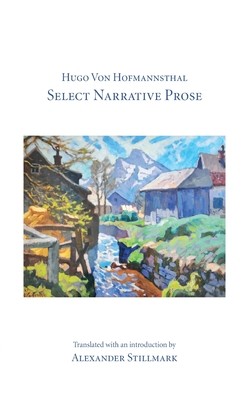
- We will send in 10–14 business days.
- Publisher: Ariadne Press
- Year: 2020
- Pages: 142
- ISBN-10: 1572412119
- ISBN-13: 9781572412118
- Format: 12 x 19 x 0.8 cm, minkšti viršeliai
- Language: English
- SAVE -10% with code: EXTRA
Hugo Von Hofmannsthal Select Narrative Prose (e-book) (used book) | bookbook.eu
Reviews
Description
There is scarcely a modern writer more difficult to subsume under a single heading or category than Hugo von Hofmannsthal. His manifold gifts as a poet, playwright, librettist, novelist, essayist, anthologist and co-founder of the Salzburg Festival are astonishing enough. That he assimilated so much literary tradition while at the same time exploring a wealth of new forms such as lyrical drama, the prose poem or the fictional letter, gives his oeuvre an appearance of protean creativity. The twin forces of tradition and innovation are co-existent in him and both give impetus to his art.
Born in Vienna in 1874 and heir to the great legacy of European letters, he commanded the principal ancient and modern languages and as an avid reader was conversant with all major writers of the past. Vienna at the turn of the nineteenth century is to be seen as a focal meeting-place of European culture: it is the city of Gustav Mahler, Sigmund Freud, Ernst Mach, Gustav Klimt, Hermann Bahr, Arthur Schnitzler and Karl Kraus, to name but a few of the most prominent of the artists, writers and thinkers who lent distinction to that great centre of 'the multi-national state'. It was a city which continued to hold fast to tradition in its social and political life: it preserved its ancient monarchy until the death of Emperor Franz Joseph in 1916. Hofmannsthal saw forty-two years of that reign and had only eleven more years of life left after the new Republic of Austria was established in 1918.
EXTRA 10 % discount with code: EXTRA
The promotion ends in 23d.17:18:24
The discount code is valid when purchasing from 10 €. Discounts do not stack.
- Publisher: Ariadne Press
- Year: 2020
- Pages: 142
- ISBN-10: 1572412119
- ISBN-13: 9781572412118
- Format: 12 x 19 x 0.8 cm, minkšti viršeliai
- Language: English English
There is scarcely a modern writer more difficult to subsume under a single heading or category than Hugo von Hofmannsthal. His manifold gifts as a poet, playwright, librettist, novelist, essayist, anthologist and co-founder of the Salzburg Festival are astonishing enough. That he assimilated so much literary tradition while at the same time exploring a wealth of new forms such as lyrical drama, the prose poem or the fictional letter, gives his oeuvre an appearance of protean creativity. The twin forces of tradition and innovation are co-existent in him and both give impetus to his art.
Born in Vienna in 1874 and heir to the great legacy of European letters, he commanded the principal ancient and modern languages and as an avid reader was conversant with all major writers of the past. Vienna at the turn of the nineteenth century is to be seen as a focal meeting-place of European culture: it is the city of Gustav Mahler, Sigmund Freud, Ernst Mach, Gustav Klimt, Hermann Bahr, Arthur Schnitzler and Karl Kraus, to name but a few of the most prominent of the artists, writers and thinkers who lent distinction to that great centre of 'the multi-national state'. It was a city which continued to hold fast to tradition in its social and political life: it preserved its ancient monarchy until the death of Emperor Franz Joseph in 1916. Hofmannsthal saw forty-two years of that reign and had only eleven more years of life left after the new Republic of Austria was established in 1918.


Reviews